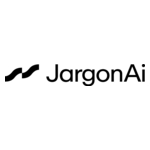Kompasbank secures €175m guarantee from EIF to “take on riskier lending segments” in Denmark
Vedbæk-based corporate bank Kompasbank has secured €175 million worth of portfolio guarantee agreements with the European Investment Fund (EIF) to provide loans with reduced interest rates and longer maturities to SMEs in Denmark.

EIF funds €175m guarantee for Kompasbank SME lending
The three guarantees contained in the deal are supported by the InvestEU programme, an initiative of the European Union to mobilise at least €372 billion for investments into sustainable infrastructure, social projects, digital research and development, and as seen here, SME financing.
The EIF, which operates under the European Investment Bank Group, previously leveraged the same programme to fund a similar €40 million deal with SME Finance in Lithuania last year.
Kompasbank says it plans to leverage the guarantees to “take on riskier lending segments, including start-ups”, with the first, it explains, to be put towards “skills and investments related to education”.
The second guarantee will be used to support SMEs in Denmark that invest in “the green and sustainable transformation of the Danish economy”, with a specific focus on “projects targeting climate change mitigation”.
It will use the remaining guarantee to support “riskier investments” in SMEs and start-ups, but the specific sectors receiving these investments have not been disclosed.
“We often find that Danish SMEs have to drop specific growth initiatives or are forced to lower their ambitions because they do not have sufficient and fast enough access to financing,” explains Michael Hurup Andersen, founder and CEO of Kompasbank.
He adds that this trend damages companies’ competitiveness, as well as the economy and job creation, due to the financial cost incurred when “good and sound investment cases are put on standby”.
Andersen concludes: “We are pleased that, with the new EIF agreement, we can help hundreds of more SMEs to quickly and frictionlessly realise their growth ambitions while supporting the green transition and contributing to more investments in education and skills.”










































